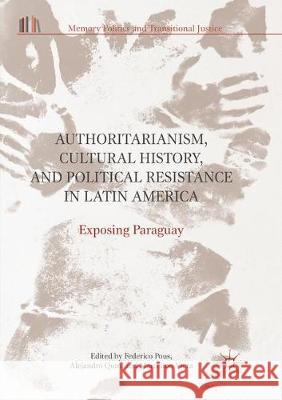Authoritarianism, Cultural History, and Political Resistance in Latin America: Exposing Paraguay » książka
topmenu
Authoritarianism, Cultural History, and Political Resistance in Latin America: Exposing Paraguay
ISBN-13: 9783319851808 / Angielski / Miękka / 2018 / 301 str.
Kategorie BISAC:
Wydawca:
Palgrave MacMillan
Seria wydawnicza:
Język:
Angielski
ISBN-13:
9783319851808
Rok wydania:
2018
Wydanie:
Softcover Repri
Ilość stron:
301
Oprawa:
Miękka
Wolumenów:
01











